Sherlock Holmes, the fictional detective of great observational and deductive powers, is probably the best-known sleuth in the world. The invention of British author Arthur Conan Doyle, Holmes sprang to life in 1887 and is supposedly modeled on Joseph Bell, a surgeon at the Royal Infirmary of Edinburgh. Doyle was in his late 20s when he wrote up a short story and sold it to a local publishing house.
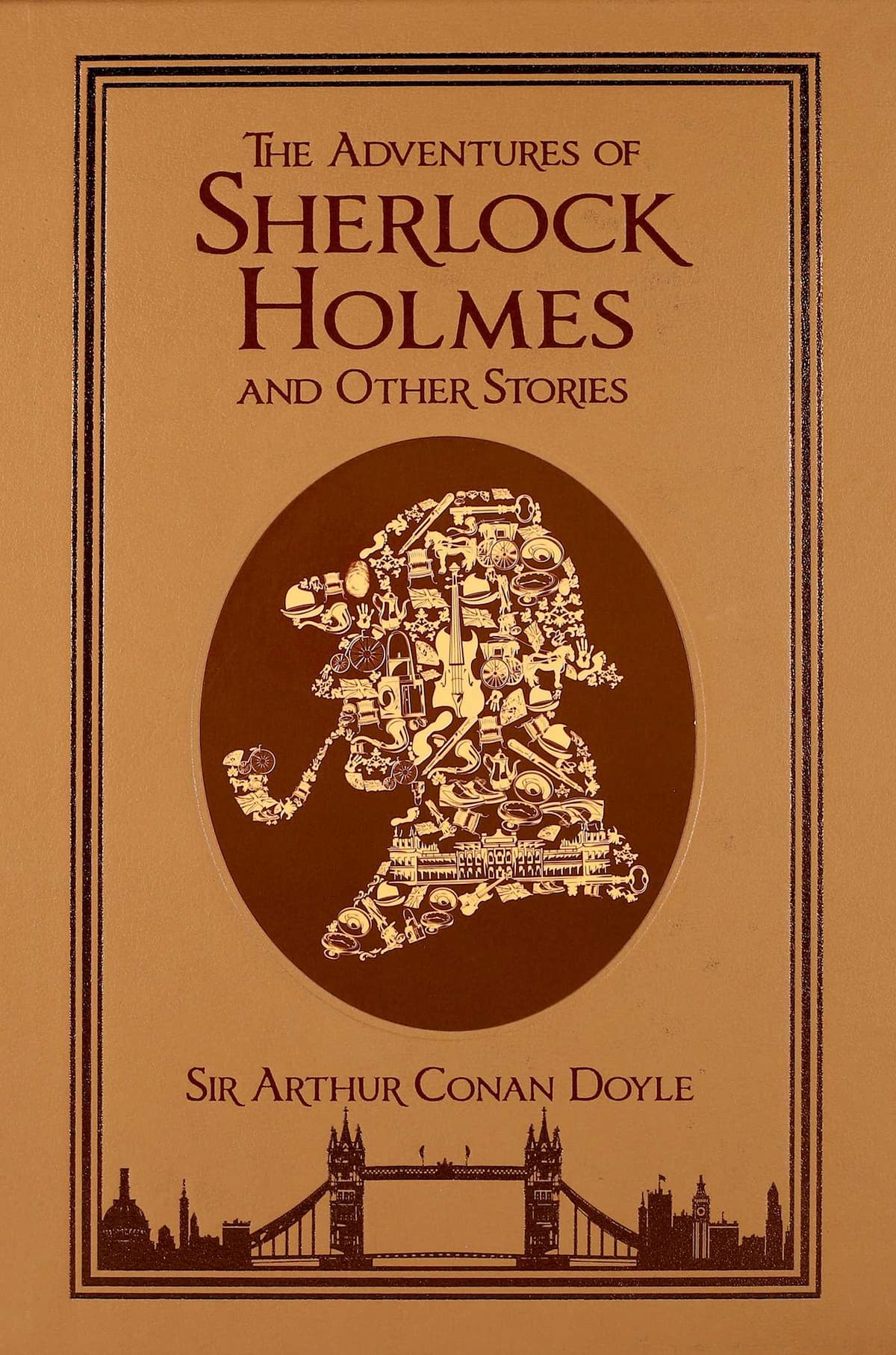
Arthur Conan Doyle: The Adventures of Sherlock Holmes, and Other Stories
That story was published in several magazines and newspapers, and quickly developed a life of its own. “Sherlock Holmes” has since become one of the most important literary characters of all time, and by the late 1990s, well over 25,000 stage adaptations, films, television productions, and publications featured the famed detective.
In order to mark the birthday of its creator, 22 May was designated “Sherlock Holmes Day,” an international holiday celebrated annually since 2013. When Holmes is not solving crimes, he actually likes to play the violin, and Paganini is his favorite composer. As his sidekick Dr. Watson reports, “His powers upon the violin were very remarkable but as eccentric as all his other accomplishments.” It turns out that Holmes also likes to listen to the music of Richard Wagner and Pablo de Sarasate. In honor of the celebration of Sherlock Holmes Day, we decided to feature some musical selections connected with this fabled detective.
Hans Salter/Frank Skinner: Sherlock Holmes and the Voice of Terror
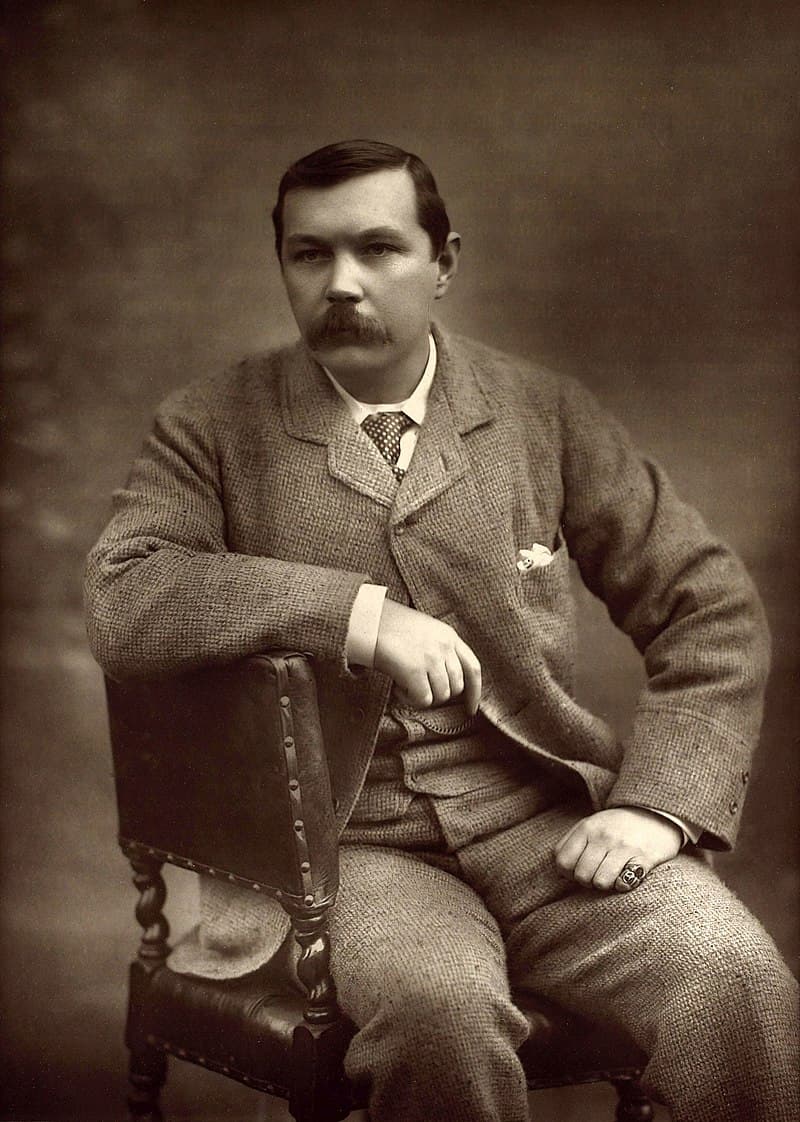
Sir Arthur Conan Doyle
Hans Salter/Frank Skinner: Sherlock Holmes and the Voice of Terror (Slovak Radio Symphony Orchestra; William Stromberg, cond.)
Sherlock Holmes has been well represented in motion pictures, and between 1939 and 1946, a series of fourteen films based on Sherlock Holmes stories was released. British actors Basil Rathbone and Nigel Bruce played Holmes and Dr. Watson, respectively, and the 1942 Sherlock Holmes and the Voice of Terror is set during the Second World War, with Holmes consulted to capture a Nazi agent who broadcasts under the name the “Voice of Terror.” Hans J. Salter and Frank Skinner wrote the music for the movie, conjuring up the dangers of the Nazis’ terror. Skinner hailed from the Midwestern United States, and he had a strong band background. Slater was actually born in Vienna and studied with composers Alban Berg and Franz Schreker, before fleeing Hitler’s nightmare. Few musical collaborators in film history have proven as intriguing as Salter and Skinner, as they “combined a formal mastery and deep sense of tradition with a carefree verve and restless originality that stamped it as utterly American.”
James Bernard: The Hound of the Baskervilles
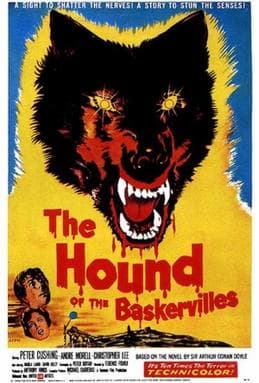
The Hound of the Baskervilles
James Bernard: The Hound of the Baskervilles: Main Title and The Legend of the Hound (Robert Zubrycki, violin; Studio orchestra; Lanny Meyers, cond.)
The original film of the series, released on 31 March 1939, was titled “The Hound of the Baskervilles.” Holmes and Watson arrive at the Baskervilles estate on Dartmoor, to investigate the death of Sir Henry, the last family heir. A local myth suggests that a vicious hound stalks the descendants of the family, and Holmes arrives in the disguise of a peddler. They do witness the death of an escaped convict, killed by a large hound. In the end, however, the real killer turned out to be John Stapleton, a distant relative who hoped to claim the fortune and title for himself. That particular storyline, receiving countless adaptations, proved highly popular and spawned a number of films, including the 1959 gothic mystery by the same name. The music for that film originates with the British composer James Bernard (1925-2001), a composer particularly associated with horror films. He had previously scored such films as The Curse of Frankenstein and Dracula, and his music is distinguished by clashing harmonies, the frequent use of percussion, and a frenzied pace.
Hans Zimmer: Sherlock Holmes, “Discombobulate”
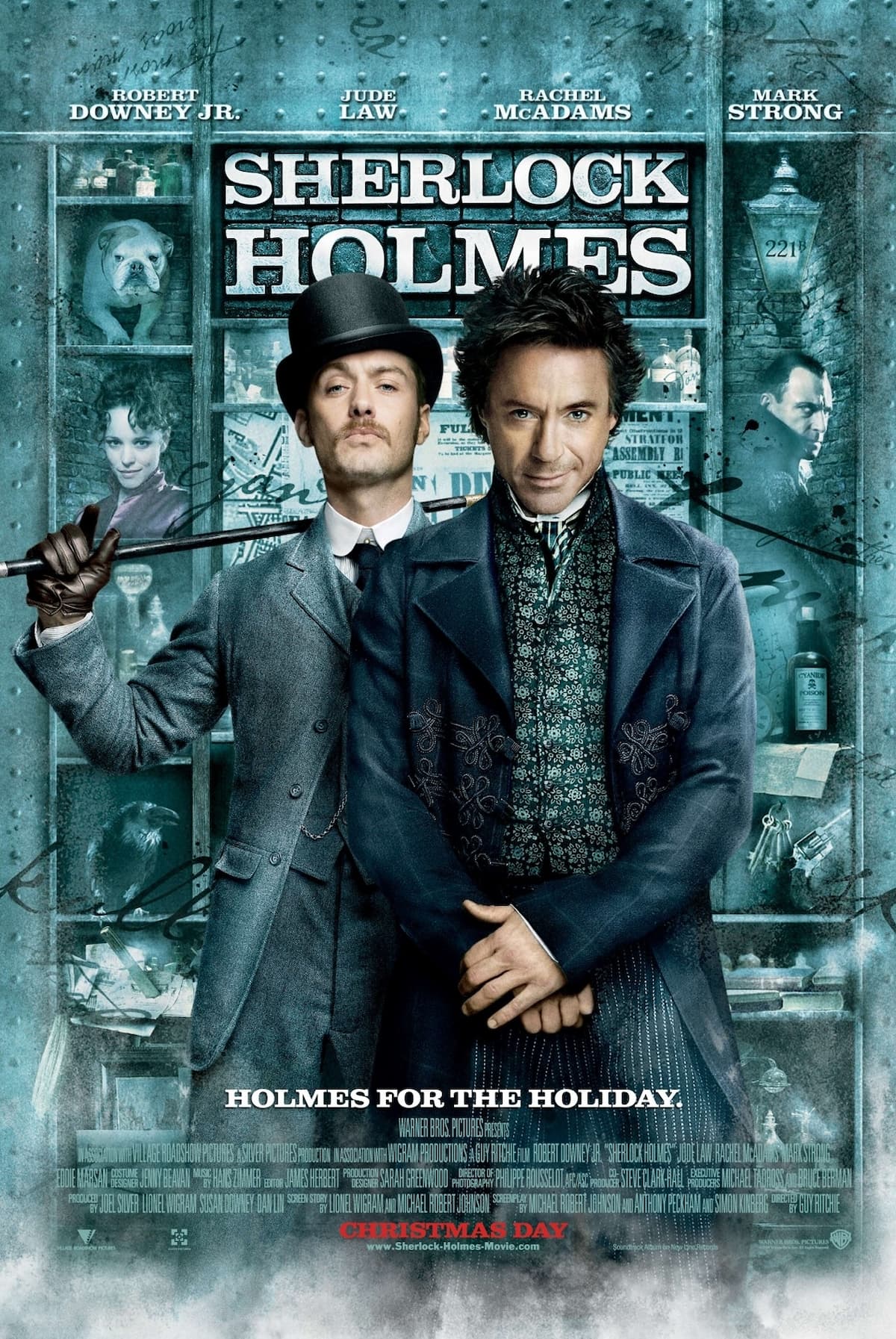
Sherlock Holmes (2009 film)
Hans Zimmer: Sherlock Holmes, “Discombobulate” (Danish National Symphony Orchestra; Sarah Hicks, cond.)
Sherlock Holmes remains a box-office hit in the 21st century, and the 2009 period mystery action film starring Robert Downey Jr. won Golden Globe Awards and was nominated for two Academy Awards. In this off-spin, Holmes and Watson are hired by a secret society to foil a plot to gain control of Britain by supernatural means. Hans Zimmer, a composer coming from a popular music and synthesizer background, scored the film. Growing up in Germany, Zimmer played the piano at home but he disliked the discipline of formal lessons. He once said, “my formal training was two weeks of piano lessons. I was thrown out of eight schools. But I joined a band. I am self-taught, but I’ve always heard music in my head. And I am a child of the 20th century, computers came in very handy.” By now, Zimmer has been named on a list of Top 100 Living Geniuses.
Leo Smit: 2 Hommages, No. 1 “Hommage á Sherlock Holmes”
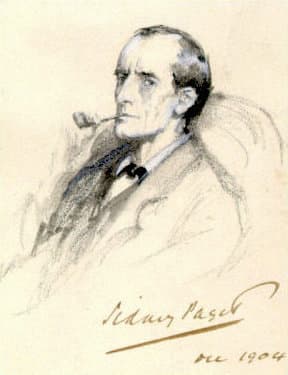
Portrait of Sherlock Holmes
The Dutch Composer Leo Smit (1900-1943) had established himself in his native Amsterdam before taking up residence in Paris in 1927. He was strongly influenced by the music of Ravel and Stravinsky, and maintained close contact with “Les Six.” He was greatly inspired by the new French music and by jazz, which is clearly audible in his Hommage to Sherlock Holmes, dating from 1928. The role Sherlock Holmes plays in his “Hommage” is mysterious and shadowy, just as it is supposed to be. All we can say is Happy Birthday Mr. Holmes, and many more to come.
For more of the best in classical music, sign up to our E-Newsletter
Leo Smit: 2 Hommages, No. 1 “Hommage á Sherlock Holmes” (Franz van Ruth, piano)
